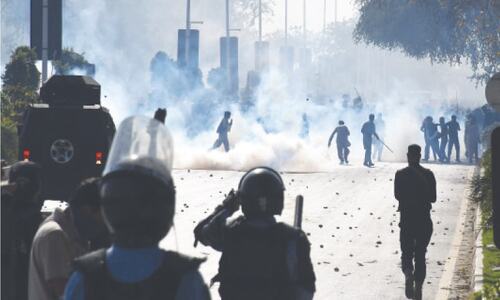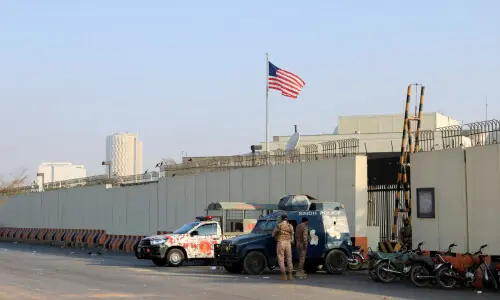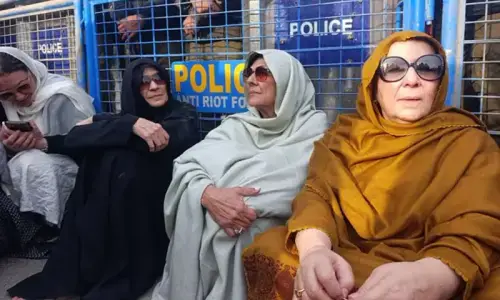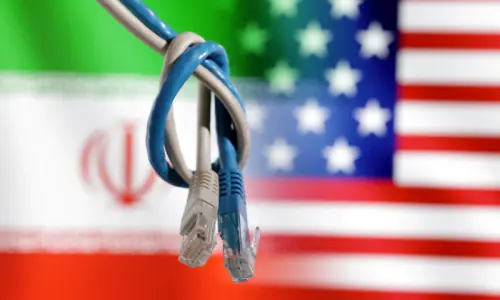ISLAMABAD: Raising awareness about the international laws and treaties that Pakistan has signed can play an important role in countering terrorism and de-radicalisation, said law expert Ahmer Bilal Soofi on Wednesday.
Speaking at a talk on ‘International Law, Terrorism and De-radicalisation’ which was hosted by the Pak Institute for Peace Studies, Mr Soofi said most of the lawmakers do not know much about the international laws Pakistan has signed and therefore there is a need to establish a treaty cell in Parliament House.
The current international law framework in the world is from 1945 when the sovereignty of state was accepted across the world, Mr Soofi, who is also president of the Research Society of International Law, said.
For instance, he explained, the United Nations’ Article 2-4(A) makes it illegal for “member states” to declare war on one another. He said many states, including Pakistan, are bound by that international framework, including the many treaties they have signed.
Legal expert calls for teaching international laws in madressahs to counter radical ideologies
Unfortunately, the Muslim world and its scholars are living in the pre-1945 era when force was exercised to annex territories in the name of common bonds. Referring to some radical thoughts he said that these scholars still believe they will impose the Khilafat, will conduct Jihad outside the country, do not accept the Constitution of Pakistan and believe man-made laws are against Islam and Sharia.
Therefore, he said, we need to show them that man-made laws are not against sharia and that the Federal Shariat Court finds them in accordance with Islam.
“Most of our present laws are linked with Islamic concepts. For instance, the Pakistan Penal Court addresses the struggle with the inner soul of the Jihad al-nafs, civic agency laws safeguard neighbour’s rights, labour laws protect labour rights and many other Pakistani laws are made in accordance with Islam,” he said.
Raising awareness about international laws will help people understand the constraints that leaders face, Mr Soofi said, adding that the notion of sovereignty stands reduced due to these commitments.
Discussing his experiences with some students when they were sensitized about international laws, he said some were initially sceptical and that when they had studied the laws more closely, the students said they would have been wary of taking action that embarrasses their state had they known of the treaties their state had committed to.
He suggested that prisoners should undergo a de-radicalisation programme, including awareness about international laws and its relevance in Islam, for instance that the Prophet’s (PBUH) Sunnah was to uphold treaty commitments and that he would honour international agreements.
He recommended the translation and dissemination of important international legal texts in Urdu and other local languages for raising awareness.
He said the syllabus for madressahs should include international law and that teachers be especially trained for teaching these courses.
Talking about long-term strategies, he suggested the setting up of a think-tank on de-radicalisation in Muslim countries and that combined courses for scholars from these countries could be an important part of counter-terrorism strategies.
Published in Dawn November 17th, 2016





























